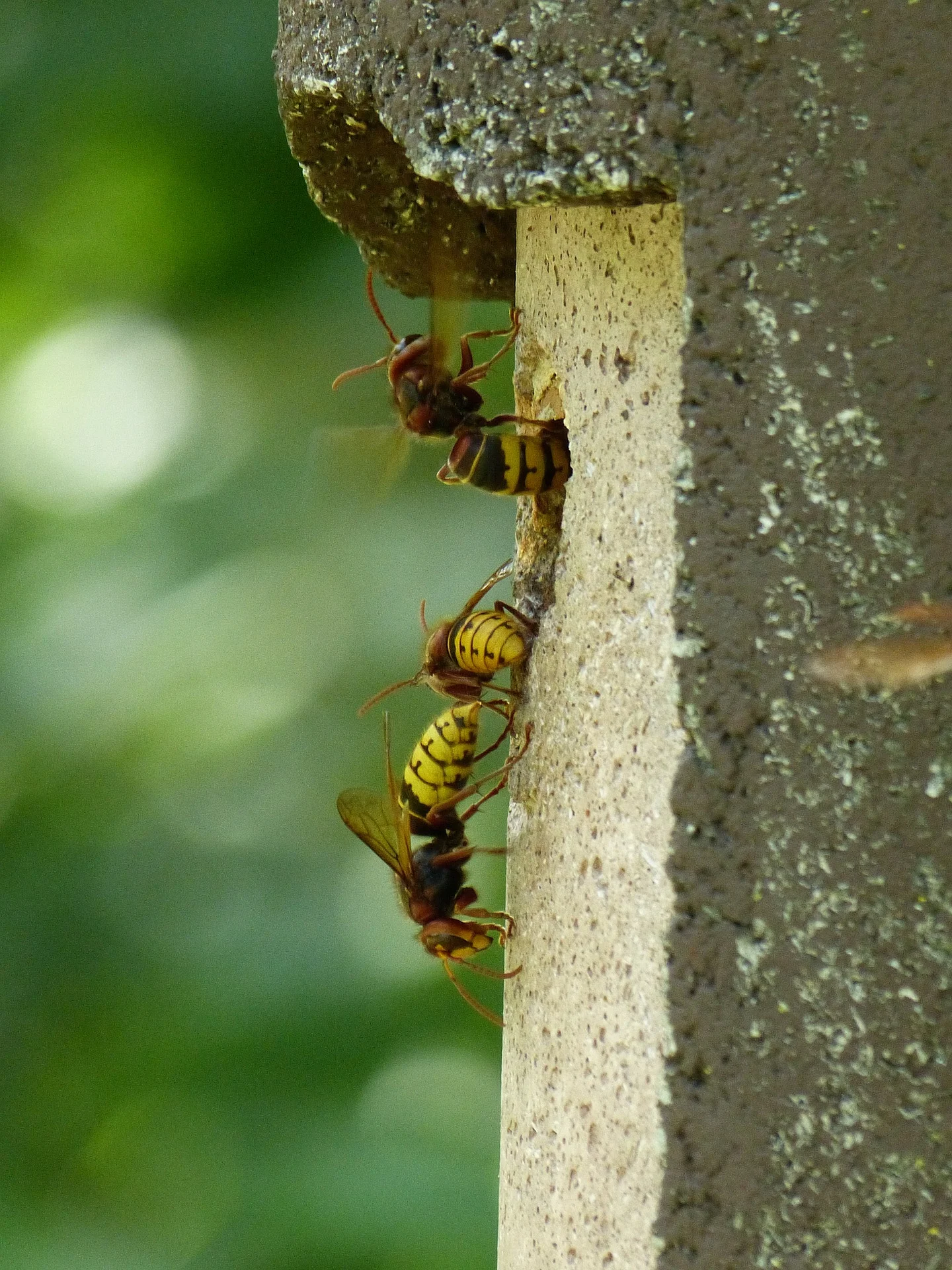WE'VE GOT YOU PROTECTED / 01561340308 / 07878889568 / info@dalgettypestcontrol.co.uk
Wasps
The party of pooper of the summer months!
Finally we get to enjoy a glimmer of sunshine, and these pests decide to grace us with their unwanted appearance. Turning our dreams of BBQs and family days out into nightmares and misery.
In the springtime, a Queen will start to make her nest, sending out workers to gather nest supplies, however it is not until the summer months that they are usually detected by their increased numbers.
Areas with an accessible wood supply are typically where their nests are found as they use the pulp to build with. Sheds, warehouses, lofts and garages are good examples of their nest locations. They will travel over a mile to find food, so although you may be feeling victim to an attack they may originate from further afield.
Busy wasp activity around roof tiles or wall cavities are often a sign that the nest may be close at hand. A wasp sting can be uncomfortable, but for some of us it can cause serious harm from anaphylactic shock due to allergies or a high frequency of stings within a small time frame.
How to deal with a wasps nest
This is an occasion where size certainly does matter, as the immediate effect of many treatments is an increase in wasp activity. If its the size of a tennis ball, you’ll likely be able to vacuum it up however anything bigger requires some thought for apparatus and risk assessment!
We take one of two approaches:
- If the nest is accessible, we will look to use a quick freeze spray that allows us to bag and remove the nest within minutes.
- If access is limited, residual dust insecticide is sprayed at the areas of activity. We have long reach tools that give us access to the most obscure of places, the worker wasps then carry this back to the nest with the treatment taking effect within 24 hours.
Preventing wasp nests
The good news is that a wasp does not reuse a nest site, however they will build one right next door! Some tips for minimising your risk would be to;
- Secure small holes giving into loft spaces, cupboards, sheds
- Treat timbers with eucalyptus oils, menthol or citronella oil
- Inspect areas regularly, getting rid of nests while they are small in size.


